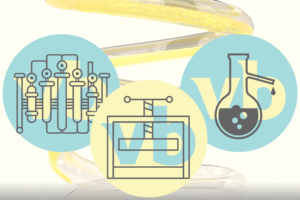Starting a career in lab quality control can be both exciting and challenging. To thrive in this field, you need a blend of technical knowledge, practical skills, and personal qualities. In this blog post, we’ll explore the essential skills that can set you apart and help you excel in lab quality control jobs.
1. Attention to Detail
In lab quality control, being meticulous and detail-oriented is crucial. Small errors can lead to significant issues, so it’s essential to thoroughly check your work and follow strict protocols. Whether it’s measuring out a solution or calibrating a piece of equipment, every step must be executed with precision. Quality control in any lab rests on the flawless execution of these small steps, making attention to detail non-negotiable for success.
Additionally, documentation plays a pivotal role in laboratory work. Detailed record-keeping ensures traceability and accountability, facilitating audits and reviews. This can be particularly important when dealing with regulatory compliance or demonstrating the validity of your results to stakeholders. Being diligent in recording every detail can save time and resources in the long run.
2. Analytical Thinking
The ability to analyze data critically and draw meaningful conclusions is vital in lab quality control. Analytical thinking helps in identifying patterns, troubleshooting issues, and ensuring that processes are optimized. For example, when faced with unexpected results, you need to assess various factors—such as the reagents used or the environmental conditions—to pinpoint the issue. Mastering statistical analysis tools can further enhance your analytical capabilities, enabling you to interpret complex datasets effectively.
In the rapidly evolving field of laboratory data analysis, strong analytical thinking can make a significant difference. Mastering tools like R, Python, and SAS not only helps in data interpretation but also allows you to make accurate and meaningful conclusions from the data. Learning essential skills in this area will set you apart, enabling you to stay ahead in the competitive landscape of lab quality control.
3. Technical Proficiency
Being proficient with lab equipment and software is essential. This includes understanding how to operate, maintain, and troubleshoot various instruments used in quality control testing. Whether it’s a high-performance liquid chromatograph or a mass spectrometer, familiarity with these tools ensures the accuracy and reliability of your results. Ongoing education and practice are key to maintaining this proficiency.
Laboratories are increasingly seeking candidates who not only know how to use standard laboratory instruments but also understand the principles behind their operation. This knowledge helps in troubleshooting equipment issues and optimizing their usage. Staying updated with the latest developments in your field through workshops or certifications can significantly enhance your technical proficiency, making you a valuable asset to your team.
4. Problem-solving Skills
Problems and unexpected results can arise at any time. Having strong problem-solving skills helps you to quickly identify the root causes of issues and implement effective solutions to maintain quality standards. This involves a systematic approach to troubleshooting, considering all possible variables and using logic to pinpoint the issue. Developing a problem-solving mindset is crucial for overcoming the challenges that often arise in lab settings.
Moreover, effective problem-solving requires collaboration with team members. Engaging with colleagues to brainstorm solutions can lead to innovative approaches that you might not have considered alone. Being open to different perspectives and solutions is key to maintaining the high standards expected in lab quality control.
5. Good Communication
Clear and concise communication, both written and verbal, is essential for documenting findings, reporting to stakeholders, and collaborating with team members to ensure quality control processes run smoothly. Your ability to convey complex information in an easily understandable manner can bridge gaps and prevent misunderstandings. Proper documentation of protocols, data, and observations is critical for maintaining consistency and ensuring all team members are on the same page.
Communication also plays a vital role in training new team members and sharing best practices. Effective communication ensures that everyone understands and adheres to established quality procedures, reducing the risk of errors. This can be particularly important when dealing with regulatory compliance, where clear and precise documentation is often required.
6. Organizational Skills
Organization is key to managing multiple tests and experiments simultaneously. This involves keeping accurate records, managing time efficiently, and ensuring all lab activities are well-coordinated. An organized approach to work helps in prioritizing tasks and managing deadlines, ensuring that quality control processes are completed on time and accurately.
Utilizing tools like laboratory information management systems (LIMS) can greatly enhance your organizational skills. A LIMS streamlines workflows, manages data, and maintains compliance standards, making it easier to keep track of sample statuses, test results, and other critical data. Proficiency in using such systems is a valuable asset in maintaining a well-organized lab environment.
7. Knowledge of Compliance and Regulations
Understanding and adhering to industry standards and regulations is vital for lab quality control. This ensures that all processes meet legal and safety requirements, which is critical for maintaining trust and credibility. Familiarity with standards like ISO 9001 helps you develop robust quality management systems that meet global benchmarks for excellence.
In many industries, regulatory compliance can make or break a company’s reputation. Being well-versed in regulatory requirements, such as those set forth by the FDA or EMA, ensures that your lab operates within the legal framework. Understanding these standards and their implications can help you navigate the complexities of regulatory compliance more effectively.
8. Team Collaboration
Quality control often involves working closely with a team. Being able to collaborate effectively with others ensures that everyone is aligned on quality objectives and that tasks are completed efficiently. A successful team player in the lab environment contributes ideas, listens to feedback, and works towards advancing scientific discovery and innovation.
Effective teamwork is built on clear communication and mutual respect. Understanding the strengths and weaknesses of your team members allows you to delegate tasks more effectively and ensure that everyone is working toward a common goal. This collaborative approach can lead to more innovative solutions and a more productive work environment.
9. Adaptability
The ability to adapt to new methods, technologies, and changing protocols is crucial. This flexibility allows you to stay current with industry trends and continually improve lab quality control practices. Adaptability ensures that you can quickly pivot when faced with new challenges or opportunities, maintaining the lab’s standards of excellence.
In a field that is constantly evolving, staying adaptable means being open to learning and willing to embrace change. Continuous improvement and innovation are key components of successful quality control, and your ability to adapt can set you apart as a forward-thinking professional.
10. Continuous Learning
Science and technology are constantly evolving. Having a mindset geared towards continuous learning ensures that you stay updated with the latest advancements and best practices in lab quality control. Pursuing ongoing education through workshops, courses, and certifications can keep your skills sharp and relevant.
Laboratory professionals are expected to stay abreast of the latest developments in their field. By actively seeking opportunities for professional development, you demonstrate a commitment to excellence and a dedication to maintaining high standards in your work. Engaging with relevant blogs and industry publications can provide valuable insights and inspiration.





